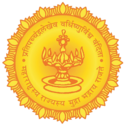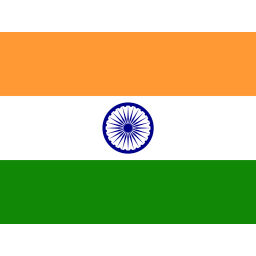Address by Governor at Special Convocation of the MUHS for the conferment of D.Litt Honoris Causa on Dr Abhay Bang and Dr RaniBang
Address by Shri CH. Vidyasagar Rao, Governor of Maharashtra at the Fourth Special Convocation of the Maharashtra University of Health Sciences for the conferment of D.Litt Honoris Causa on Dr Abhay Bang and Dr Rani Bang at Sahyadri State Guest House, Malabar Hill, Mumbai at 3.30 PM on Tuesday, 30 July 2019
Shri Devendra Fadnavis, Hon’ble Chief Minister of Maharashtra, Shri Girish Mahajan, Pro-Chancellor of MUHS and Hon’ble Minister of Medical Education, Dr Deelip Mhaisekar, Vice Chancellor of the Maharashtra University of Health Sciences, today’s Satkar Moortis Dr Abhay Bang and Dr Rani Bang, eminent Medical Professionals, Medical Faculty, members of various Boards of Authority of MUHS, Public Health Experts, Administrators, Policy Makers, ladies and gentlemen,
I am pleased to associate myself with the Fourth Special Convocation Ceremony of the Maharashtra University of Health Sciences and to confer D.Litt. Honoris Causa on Dr Abhay Bang and Dr Rani Bang.
At the outset, I convey my appreciation to the University for honouring Dr Abhay Bang and Dr Rani Bang for their lasting good work in the field of health care and health awareness among rural poor and tribals in the underdeveloped district of Gadchiroli.
By honouring Dr Abhay Bang and Dr Rani Bang, we are also honouring the late Shri Thakurdas Bang, eminent Gandhian and father of Dr Abhay Bang, who dedicated his entire life in the service of the people.
For almost four decades, Dr Abhay Bang and Dr Rani Bang are living and working in the midst of the people, mostly the poorest and marginalized tribals. They are striving to realize the goal of ‘Arogya Swaraj’, by helping rural communities to achieve freedom from disease and dependence. They have done exemplary work in the field of community health, de-addiction, rural social upliftment and home based newborn care among the poorest people. Dr Abhay Bang and Dr Rani Bang are the true followers of the Hippocratic Oath in letter and spirit. I congratulate Dr Abhay Bang and Dr Rani Bang for their outstanding work for the rural poor and tribals. I want to tell them that MUHS is proud of you and Maharashtra is proud of you.
Ladies and gentlemen,
The Maharashtra University of Health Sciences was set up nearly two decades ago. During these years, it has strived consistently to ensure proper and systematic instruction, teaching, training and research in Modern Medicine and Indian Systems of Medicine in the State of Maharashtra.
The University deserves our wholehearted compliments for some of its recent initiatives such as establishment of International Education Hub, entering into agreement with a host of universities and industries, establishment of University Research Department, AYUSH Department for research in Indian system of Medicine, Tribal Health Department, and others.
Ladies and gentlemen,
The admission process of various institutions of higher education and medical education is in progress. It is true that administering a University as vast as MUHS, with 374 Colleges under its aegis, is a tough challenge. However, I do feel that the University, alongwith the Department of Medical Education, DMER, and all concerned bodies should think of making the admission process simple, hassle-free and less bureaucratic for aspiring students and their parents.
Thousands of our young students are going to China, Russia, Ukraine and other countries for pursuing medical courses. Getting admissions to medical courses is much easier in those countries than in our universities. I think, we must introspect and see, how we can improve the ‘Ease of Doing Admission’.
It should be our goal, not only to prevent our own students from going to other Universities, but also to attract students from other countries for medical programmes in our State.
In a recently published article, renowned Cardiologist Dr Devi Shetty has made an important suggestion. He noted that there are 330 private or trust hospitals in India with 300 to 800 beds conducting postgraduate training under the National Board of Examinations (NBE). He felt that by introducing MBBS programme in these hospitals with 100 seats per hospital, we can add over 30,000 MBBS seats in less than a year, at no cost to government. I think the suggestion needs due consideration in Maharashtra.
Ladies and gentlemen,
I wish to flag three or four issues for the consideration of this august gathering.
According to the 2011 census, India has 104 million elderly people having age of 60 and above. It is expected that India will have 340 million elderly people in 2050. Which means, India alone will have an elderly population which is more than the total population of the United States of America !! MUHS must take notice of this emerging demographic trend and come up with a strategy to address the emerging health challenges of the elderly. In the years to come, we will require more old age homes, old age care providers and even specialized hospitals for the elderly to provide them required health facilities.
Growing tension between patients and doctors is a deeply worrying phenomenon. . The relations between a doctor and a patient should be based on mutual trust. That sacred trust will be maintained if doctors are trained to be human and humane and to practice their craft with utmost compassion for the suffering people.
We need collective efforts to improve the doctor’s communication with patients and ‘humanise’ the medical profession.
There is a growing ‘mechanisation’ of the medical profession. Mechanisation has certainly helped in improved diagnosis and better treatment. However, human dimension has been relegated to the secondary place. Some course correction is needed in this regard.
India is emerging as the diabetic capital of the world. The rising incidence of lifestyle diseases – like diabetes, cardiovascular diseases, and many cancers is a cause of concern. Our medical fraternity and researchers must accept these challenges and find solutions to tackle them.
Last year, the Hon’ble President of India inaugurated a ‘Centre of Excellence for Sickle Cell Anaemia, Thalesamia and Other Blood Genetic Disorders’ in Karimanagar in Telangana. Sickle cell anaemia, thallasemia and other genetic disorders are prevalent in Gadchiroli district, Telangana and also in the bordering Chhattisgarh. MUHS must look into this problem so as to improve the quality of life of the affected people.
Maharashtra is indeed fortunate to have dedicated people like the Amtes, the Bangs and the Kolhes. They should be role models for the doctors and future doctors. I congratulate Dr Abhay Bang and Dr Smt Rani Bang for being conferred with D. Litt. and I wish them Godspeed in their noble mission.
I also congratulate MUHS for organizing this Special Convocation and wish the University success in its future endeavours.
Thank you
Jai Hind ! Jai Maharashtra !!



